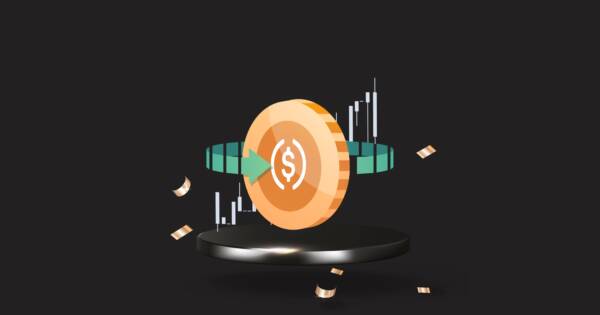You probably know that investing in the stock market is all the rage these days. You may have noticed that more and more of your social conversations revolve around the stock market or various investments. In fact, it’s getting rare these days to find someone who isn’t interested in stocks. After all, the market’s been on fire for the past year. You can find plenty of random internet users talking about how they got rich from buying Tesla stock or are riding the current GameStop wave. It all sounds great, but maybe you don’t really know the ins and outs of the stock market. If you have FOMO but are scared to put your own money into the market until you know more, we’re here to help. Let’s answer the most basic question many of you are asking: what are stocks?
The Basics of Stocks
In essence, stocks represent a right to a piece of ownership to a company’s assets and profits. Keep in mind, though, that a single share is only an infinitely small fraction of ownership. Most companies have hundreds of millions shares available, with the majority owners having possession of the majority of them. However, when a company is publicly traded, that literally means the public can buy a small percentage stake in it.
These pieces of ownership are measured in shares. Each share can be bought and sold (or traded, in other terms). Most stocks that you hear about in the news are traded on major exchanges such as the New York Stock Exchange (NYSE) or National Association of Securities Dealers Automated Quotations (NASDAQ). In Canada, the Toronto Stock Exchange (TSX) exists. In the U.K., there’s the London Stock Exchange too. These exchanges basically act as an intermediary, matching buyers and sellers so there’s efficient price discovery.
How To Buy Stocks?
You can’t directly buy stocks with the various exchanges. For the general population, stock ownership is done through a brokerage firm. They are companies that act as a custodian for your assets. You used to be forced to conduct stock trading by phone, literally calling your broker with instructions. These days, however, companies have a website (or even a smartphone app) that does the work for you.
You’ve likely heard of RobinHood, the popular stock trading app. There are plenty of others too, including Fidelity, Interactive Brokers, TD Ameritrade, or Vanguard. You can quickly and easily sign up for an account with these services, link it to a payment method (usually your checking account or credit card), and start buying various stocks. The software will communicate with the exchanges digitally to execute your orders. These websites or apps also allow you to track the price of any stock you’re interested in and will show your gains (or losses) in real time.
The Rise of Online Stock Trading
All that may sound complicated, but the electronic custodian approach works rather well in practice. In the old days, you talked to a broker who would buy and sell the stocks. You could even request to have these stock sent to you in the mail via stock certificates. Many people liked this method, since it gave them something physical to touch and see.
On the flip side, you never really knew exactly how much each share was going to cost before the trade was made. That’s because the prices may have changed by the time you hang up with your broker and they makes the trade for you. In addition, all those middlemen would take a hefty cut of each trade.
Nowadays, everything is done electronically. You no longer need to request stock certificates be sent to you directly. (Is that even a thing that’s available these days? Probably not.) Overall, though, that’s a good thing. Physical stock certificates can be stolen or lost. You were ultimately responsible for the security of those assets. Now everything is stores safely in an online account, which you can access with any laptop or smartphone. These custodians will keep you assets safe, plus they will deal with transaction details, fees, and tax records for you.
Best of all, trades are pretty much instant and commission-free these days. When you see a price that you like, you can just click “Buy” right away. You can rest easy knowing that you won’t end up spending way more (or less) than you wanted due to a major price fluctuation.
What Do You Get When You Own Stocks?
It’s all fine and dandy to say that you own a piece of the assets and profits of a major corporation. However, that doesn’t mean you can waltz into the Disney headquarters and demand an office. Or a meeting with the CEO. Or even free entry to Disney World. So what exactly do you get from owning shares of a company? Here are some of the advantages you’ll enjoy.
The Dividend
You get the dividend. Companies figured out that offering a financial reward (ie, the dividend) will attract more buyers to their stock. A dividend is basically a cash payout that the company issues to any shareholder that holds the stock at a predetermined date. The general wisdom is that by sending cash periodically to shareholders, they won’t need to sell their shares. That decreases supply, which inversely increases demand, keeping the stock price high.
The dividend is normally considered to be a form of sharing the profits of a company. However, in practice, a corporation can issue a dividend even if they have no profits at all. In modern days, companies routinely borrow on one end and pay a dividend to its shareholders on the other. That’s because stockholders of dividend paying companies expect them to pay dividends like clockwork. Any missed schedule is seen as the company being in financial trouble. A big drop in stock price usually follows.
Voting Rights
You also get voting rights. Shareholders can vote on any issues at the annual meeting, usually via proxy. While the vast majority of shareholders routinely throw away the mailing that urges them to vote, it’s important that you try to understand the issues at hand as a shareholder. Even if you trust the company executives or board of directors to make sound decisions, there’s no harm is educating yourself.
It’s well within your rights to steer the company as best as you see fit. Your vote may only be one of thousands (or millions), but you owe it to yourself to cast it anyway. You’ll also learn more about the company that you’ve chosen to invest in, based on the research you can do with the information in the voting package. Either way, it’s well worth your time.
Claim on Assets
As a shareholder, you are entitled to a claim on assets if the company liquidates. Hopefully you’ll never experience owning shares in a company that declares bankruptcy. It’s not a particularly fun experience and usually losses investors a ton of money.
However, always remember that you are in line to receive assets if you are a shareholder of a company that goes under. Unfortunately, you’re not going to be first in line. Creditors and bondholders will get their cut first. In many cases, the general shareholders don’t end up receiving anything at all. Regardless, it’s worth keeping on eye on in the event one of your stock picks goes belly up.
How Are Stocks Priced?
Stocks are traded on exchanges. As we previously mentioned, an exchange is merely a platform that connects all buyers and sellers. Since shares are bound by supply and demand forces, the prices will go up when there are more buyers than sellers. The opposite is also true, as the prices will go down when the sellers overwhelm the buyers.
When you go to a quote screen on a stock trading app, it will show the price. That number is simply the price that the last trade executed at. This is the amount that a buyer and seller last agreed to exchange shares for money. Note that with every trade, there’s always a seller and a buyer. That’s why you may have heard the phrase “there’s always a buyer somewhere.” After all, the price of a particualae stock won’t move — even in the worst of crashes — if no buyer is willing to take the shares off a seller’s hands.
Limit Orders vs. Market Orders
Now that you know what you’re getting into when you own a stock, there’s something else you absolutely must learn before you enter your first order. You need to know (and understand) the difference between a “market order” and a “limit order.”
You see, the default option to buy and sell stocks is a market order. This means that you are telling the exchange to buy the stock based on the current market pricing. This is similar to going into a store and buying something off the shelf, at whatever price the item is listed at. Alternatively, you can set a limit order. This means you set the price you want the buy order to execute at. The shares will only be bought (or sold) if the market price hits a certain threshold. Let’s go through a quick example.
An Example
Let’s say you want to buy five shares of Disney (DIS) stock. As you are looking at the buy screen, the price quickly shoots up from $205 to $206 in a matter of seconds. Now you regret that you didn’t pull the trigger a minute earlier. However, you still want to own some Disney stock, so you enter a market order. For whatever reason, there was serious buying pressure as you entered the market. By the time your order is placed in line and filled, the price of your shares rose again, to $206.50 each. Again, you kick yourself for not getting in at $205. In this example, you only bought five shares for a little over $1,000. The price fluctuation only cost you $7.50, which isn’t a bit deal. You now own the shares and forget about it.
This could also have played out differently, though. Instead, you could have put in a limit order at $205 when you saw the price shoot up. If you went this route, you are essentially telling the broker to not buy any shares unless the buyer is willing to sell them for $205 each. In other words, you’re setting an instruction to not buy unless the shares are worth $205 (or less). In this scenario, though, you wouldn’t actually buy the shares, since the price increased. On the other hand, you didn’t overpay for any shares either.
Limit Orders
For those who are new to trading, a limit order seems like a hassle. It’s just an extra step to take — and one that could result in you not owning the stock you wanted to own. However, limit orders are very useful. Those who use market orders may lose big if they don’t know what they are doing. Especially if they are investing large sums of money.
Limit orders are extremely useful for thinly traded stocks that don’t have many buyers or sellers. Let’s say you want to buy 1,000 shares of a thinly traded stock after seeing it priced around $1 a share. You put in a market order, which indicates that you want to buy 1,000 shares at whatever price the market gives you. The broker will then go to the exchange and look for sellers. It’ll see that there’s a seller with 100 shares willing to sell shares to you at $1. Additionally, the next seller is willing to sell 400 shares to you at $1.25 each. Finally, there aren’t any sellers until that one seller with 2,000 shares is willing to sell at $3 a share.
This will all happen instantaneously. However, the exchange will buy all 100 shares from the first seller at $1 a share for $100, 400 shares at $1.25 for $500, and the rest of the 500 shares at $3 for $1,500. So instead of spending $1,000 like you thought you would, you end up paying $2,100. To protect yourself, you should have used a limit order. That way, you would only get the 100 shares at $1 each, but you won’t overpay.
Supply and Demand
The reverse is also true. If you are trying to sell a larger number of shares and there aren’t enough buyers, you’ll end up getting much less than you thought you would. The market will only be able to find buyers willing to take the shares off your hands for much lower than the quote screen may indicate. By the time you realize you’re going to lose a ton of money, it’s already too late.
Obviously, these numbers are exaggerated to prove a point. In reality, there will likely be more sellers. That means the prices that participants are willing to transact are going to be closer than the example I just gave you. Still, if your buy or sell order overwhelms the market because there aren’t that many shares being traded, you will start distorting the prices with market orders and get fleeced until it’s too late.
The Bottom Line
Many people lose money in the stock market because they get caught up in the short term speculative nature of stock price volatility. However, stock returns over the long term reflect the cash flow of the company. By owning stock, you are getting a slice of the money the company makes. That’s something you can get rich off of, so it pays to pay attention.
Even though stocks are technically a tiny percentage of company ownership, you shouldn’t necessarily them as having an ownership stake. Instead, use them as an investment — that’s what they are really for, in most cases. You buy stocks in companies that you feel are going to continue to do well (ie, make money). In layman’s terms, buying stock is simply betting on a company to earn profits and/or have growth. It could perform well in either the short or long term — or both. But when your bet is right, your shares will be worth more than you paid for them eventually. Ultimately, that’s the goal for most people who buy stocks.
 Shutterstock
Shutterstock







